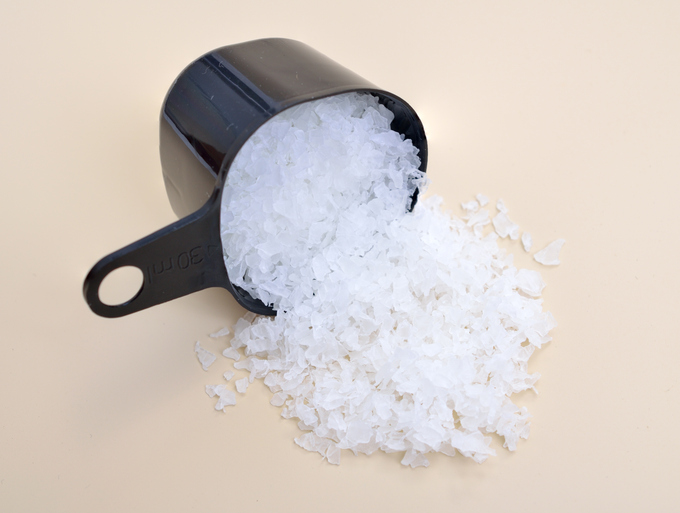NY Legislation Puts Manufacturers Under New Focus
New York City is considering groundbreaking legislation to prohibit the sale and distribution of laundry detergent pods and sheets containing polyvinyl alcohol (PVA). The “Pods are Plastic Bill,” introduced by City Council Member James Gennaro, addresses growing concerns over the environmental impact of PVA, a water-soluble synthetic polymer used to encapsulate detergents. This PVA ban is believed to be the first of its kind for the city but could be a harbinger of future legislation.
Today we’re looking at PVA, what the proposed regulations look like, and why household cleaning product manufacturers need to work with trusted formulation and compliance partners to navigate the changing terrain. Let’s dive in.
Ready to Get Started? Reach out to FCS Consulting today for compliance consulting, formulation services, and more chemical analysis assistance.
The Concern Over PVA
When PVA dissolves in the wash cycle, it breaks down into microplastics—extremely small plastic particles less than 5 millimeters in size. These microplastics can then slip through filters at wastewater treatment plants and pollute lakes, rivers, and oceans.
Research from 2021 estimated a staggering 19,000 tons of PVA are used annually just in laundry detergent pods across the United States. Of that amount, approximately 11,000 tons reach wastewater facilities, and a devastating 75% remains untreated—passing through into the environment.
Proponents argue these PVA microplastics represent an emerging contaminant with the potential to bind with other pollutants and negatively impact water quality and aquatic ecosystems. While more research is still needed, Gennaro stated the current science increasingly supports taking preventative action against PVA pollution.
The Proposed PVA Ban
If passed, the bill would prohibit the sale or distribution of any laundry or dishwasher detergent pods or sheets containing PVA within New York City limits starting January 1, 2026. This two-year delay aims to allow businesses sufficient time to pivot to alternative formulations and packaging.
Violations would start with $400 fines for an initial offense, increasing for repeated infractions. The legislation continues to gain attention from industry groups, environmental advocates, and the public at large.
A Shift Away from Plastic Packaging?
Detergent pods were initially marketed as a more environmentally friendly alternative to traditional detergent bottles and powders. By reducing packaging and precisely portioning each load, companies claimed to cut down on wasted products and plastic.
However, critics argue the risk of PVA microplastic pollution negates any sustainability benefits from lighter packaging. Environmental groups particularly voice concerns over marine life ingesting these microplastics or hazardous pollutants absorbed by PVA particles. While questions remain about the full scope of PVA’s environmental impact, the tide may be shifting toward plastic-free packaging solutions.
The Critical Role of Formulation
As legislation evolves to tackle emerging environmental issues like microplastics, companies must be prepared to adapt product formulations accordingly. Experienced chemical formulation services can provide manufacturers with the scientific expertise to navigate these changes successfully, such as:
- Replacing restricted ingredients like PVA with safer, compliant alternatives
- Ensuring new formulations meet necessary performance and stability standards
- Staying ahead of complex and evolving local/national regulations
- Providing knowledge of sustainable substitutions and green chemistry principles
With their technical formulation capabilities, these services enable smooth transitions when regulations demand changes—protecting both the environment and a company’s product line.
How Do You Adjust for a PVA Ban? Turn to FCS Consulting
As sustainability concerns drive legislation, proactive solutions rooted in environmental stewardship will be critical for the chemical industry. Having a formulation partner to guide responsible product development will be invaluable for companies striving to meet new standards while delivering effective, consumer-friendly products.
As the debate over plastics versus performance rages on, innovative chemistry and regulatory attentiveness can help balance those interests. The potential PVA ban in New York City represents an opening salvo in this battle—setting the stage for further action as the environmental impact of microplastics comes into sharper focus across several industries.
At FCS Consulting, we specialize in critical compliance and formulation services for household cleaning product manufacturers. Our team of full-time technicians and in-house chemical testing lab provide essential formulation analysis when you need it. We also go beyond testing with formulation services—such as aiding in achieving EPA certifications—and provide compliance consulting to keep your business informed about new developments. Your company can remain nimble and able to react quickly to changing regulatory requirements and keep your products on the market.
A proposed PVA ban doesn’t have to be a worrisome proposition. Contact our team today to discover how we can help.

